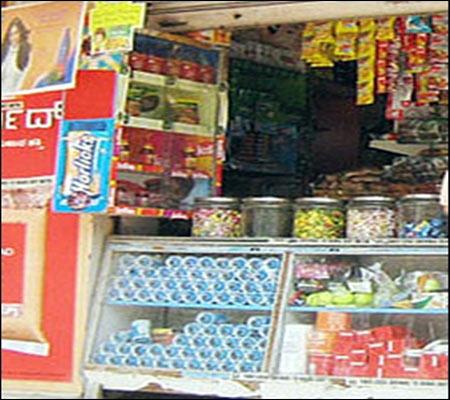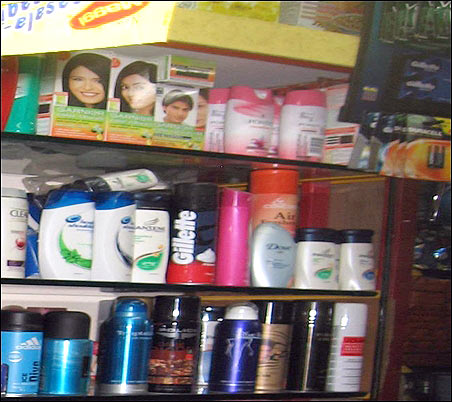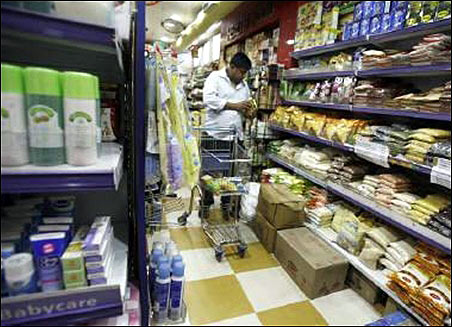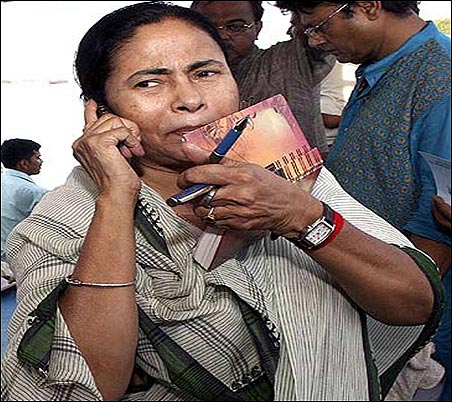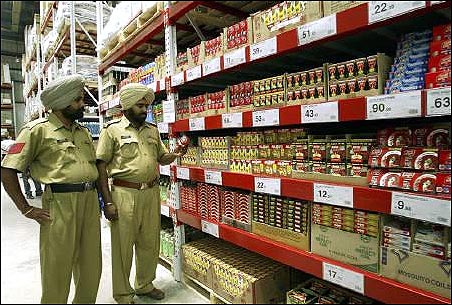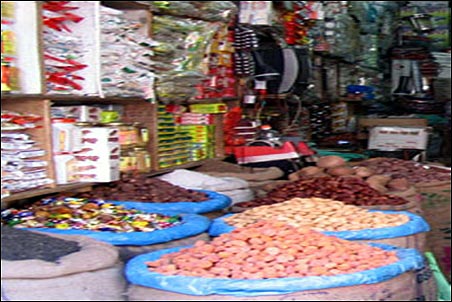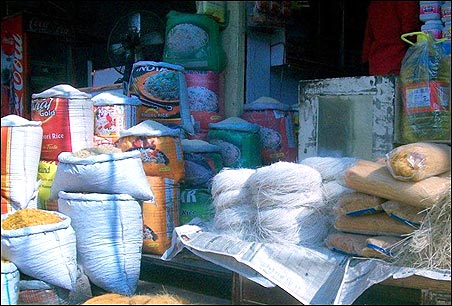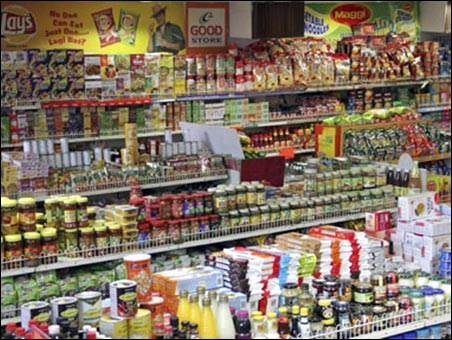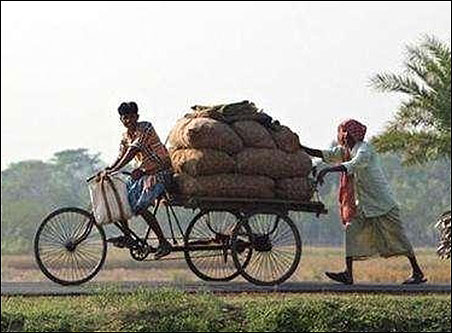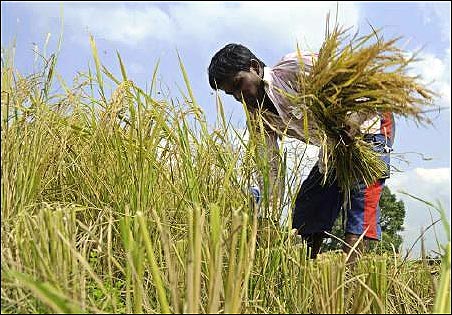 | « Back to article | Print this article |
Would you go for Walmart or 'Agarwalmart'?
Twenty years ago, I worked for a financial services outfit in an old building off Lalbazar Street, in the heart of the Eastern metro.
Downstairs, shops sold clocks, umbrellas and musical instruments. On the floor above, there was a shipping agent & chandler, established by an opium smuggler in the 1850s.
The courtyard behind was the headquarters of an establishment of negotiable affection.
Click NEXT to read more...
Would you go for Walmart or 'Agarwalmart'?
Instead of a canteen, we had "Agarwal-da", the modi. He supplied soft drinks, tea, cakes, biscuits and cigarettes apart from selling the usual toothpaste, soap, shampoo, etc.
His 12-year-old son would pop in to take and deliver orders.
The boy was enrolled in school, with zero attendance. He knew his numbers and "read" brand-names.
Click NEXT to read more...
Would you go for Walmart or 'Agarwalmart'?
He could not read a complete sentence in Bengali or Hindi. When more socially-conscious colleagues remonstrated with Agarwal-da about this, he had a riposte.
Instead of wasting his time with useless schooling, the kid was learning how to run the business, ground-up. That was how Agarwal-da himself had learnt the ropes.
That boy must now be in his 30s, and running "Agarwalmart". His son, or some other child, will be playing gofer.
Click NEXT to read more...
Would you go for Walmart or 'Agarwalmart'?
Kirana stores cut overheads by employing family and kids - often both.
Mamata didi will do her best to perpetrate this hallowed tradition of children being gainfully employed by keeping foreign retailers out of West Bengal.
Many other politicians are equally committed to protecting small stores and by extension, child labour, from global big retail.
Click NEXT to read more...
Would you go for Walmart or 'Agarwalmart'?
Big retail itself isn't new. Local chains have a visible presence and offer lower prices for staples.
The norm amendment just eases ownership. In passing, it also removes intermediation in FDI-driven "wholesale-retail".
Anybody with sales-tax registration could buy from outfits like Metro Cash & Carry or Bharti Walmart's Best Price Modern Wholesale, and sell the goods on.
Click NEXT to read more...
Would you go for Walmart or 'Agarwalmart'?
Like all else in India, the retail "revolution" is hedged about with restrictions.
It faces massive political opposition. But Indian retail chains have not put small stores out of business, and forced the 12-year-old back to school.
The small store has one key advantage: it is usually self-owned property, and real estate costs are a major entry barrier.
Click NEXT to read more...
Would you go for Walmart or 'Agarwalmart'?
Apart from that barrier, Indian retailers also lack the resources to establish supply chains – complete with cold chains and warehousing – to source in quantities where scale really counts. The global players should be able to do this.
Potentially, big retail could gain unhealthy leverage over the food chain, dictating what is grown and how. Right now, the sector dynamics are dictated by the flawed Agricultural Produce Market Committees Act (APMC).
Click NEXT to read more...
Would you go for Walmart or 'Agarwalmart'?
The Food Corporation of India and a large class of middlemen call the shots. It's unclear whether big retail would make things worse, given that over 30 per cent of food spoils.
That aside, the rationale for FDI in retail is a no-brainer. It leads to less food spoilage. It means higher prices for farmers (and other manufacturers), coupled to lower prices for consumers.
Click NEXT to read more...
Would you go for Walmart or 'Agarwalmart'?
It would boost sectors like logistics, food processing and real estate. It could lead to sticky forex inflow.
Above all, it could create millions of low-skilled jobs, which perfectly fits the demographics of a vast, unskilled labour force.
Eventually it could double, or triple employment across the sector, which currently absorbs six per cent of the workforce.
Click NEXT to read more...
Would you go for Walmart or 'Agarwalmart'?
Of course, it puts pressure on small single stores. And the new jobs will probably not go to the folks who run the little shops.
As a consumer, do you care whether you buy from Walmart or Agarwalmart?
I'd go where prices are lower, choices wider, and there is some semblance of quality control.
Click NEXT to read more...
Would you go for Walmart or 'Agarwalmart'?
Good for consumers; good for farmers; good for employment; bad for traders; bad for child labour.
The long-term equation works in terms of votes, as well as social equity and economics, I think.
